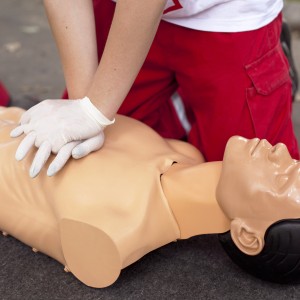 Advance Circulatory Systems (Minnesota, USA) received a premarket approval from the U.S. Food and Drug Administration (FDA) for its ResQCPR System to be used in cardiopulmonary resuscitation (CPR) of patients suffering out-of-hospital cardiac arrest.
Advance Circulatory Systems (Minnesota, USA) received a premarket approval from the U.S. Food and Drug Administration (FDA) for its ResQCPR System to be used in cardiopulmonary resuscitation (CPR) of patients suffering out-of-hospital cardiac arrest.
Standard CPR is an emergency procedure involving manual chest compressions by rescuers to restore spontaneous blood circulation and breathing in individuals undergoing cardiac arrest. Besides saving patients’ lives it may preserve intact brain function until further health measures are taken.
The FDA’s decision was preceded by a clinical trial that compared survival rates of individuals who received standard CPR versus those who received CPR using the ResQCPR System. The study concluded that this new system increased patient’s survival although pulmonary edema was more frequent compared to standard CPR.
ResQCPR System is comprised by the ResQPOD Impedance Threshold Device and the ResQPUMP Active Compression-Decompression device. The ResQPUMP has a suction cup with a pressure gauge that senses pressure when attached to the patient’s chest, enabling rescuers to apply proper pressure during down stroke and decompression during up-stroke. Compared to traditional chest compressions, this device helps to reduce the pressure inside the patient’s chest. As a result, it enhances blood flow back to the heart and consequently a greater volume of blood flowing out of the heart during the next compression improving overall blood circulation.
Together with the ResQPUMP, the ResQPOD device is adapted onto a face mask over the mouth, helping to properly move air in and out of the lungs. The two devices enhance the circulation of oxygenated blood to the heart and the brain, increasing patient’s survival while reducing the risk of neurological damage. Approximately 300,000 Americans who experience cardiac arrest and require CPR may benefit of this new technology before other advanced life-saving techniques can be applied.
“Most people who suffer cardiac arrest outside of a hospital die,” said William Maisel, acting director of the Office of Device Evaluation in the FDA’s Center for Devices and Radiological Health. “The ResQCPR System may increase oxygenated blood circulation during CPR, which in turn may improve the likelihood of survival in adult patients with out-of-hospital, non-traumatic cardiac arrest.”


